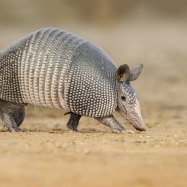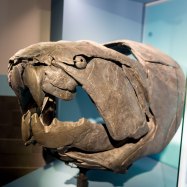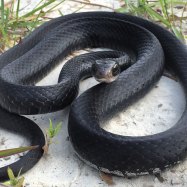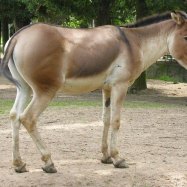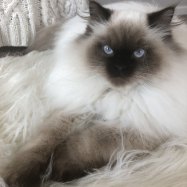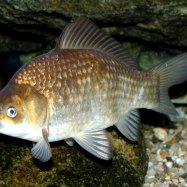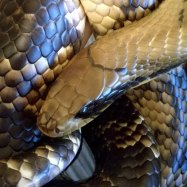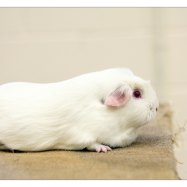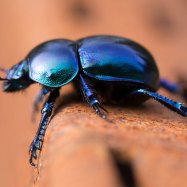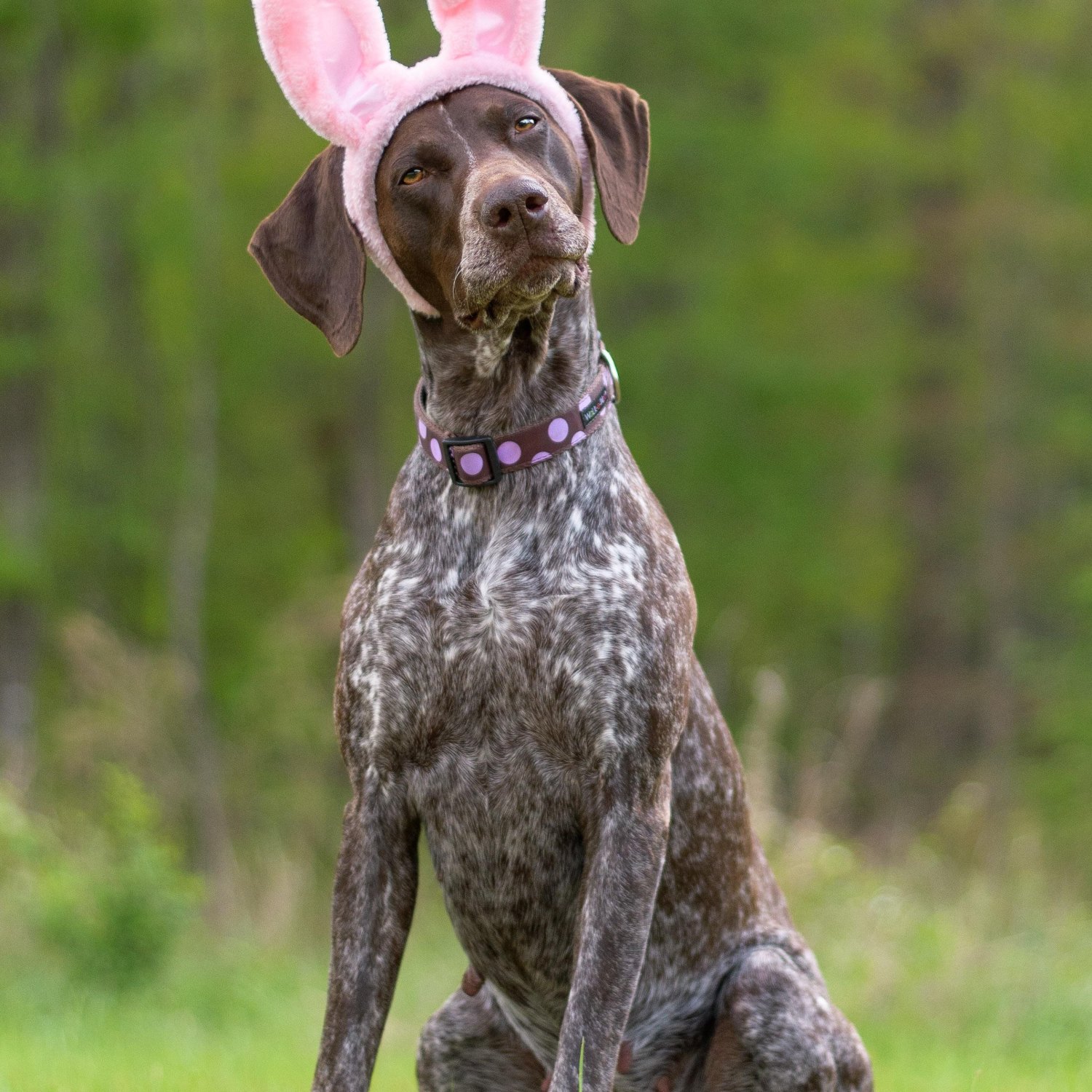
Pointer
Varies
Meet the Pointer, a medium-sized domesticated dog in the Canidae family. These intelligent and energetic dogs are highly trainable and make great companions for active families. Their length varies depending on their breed, but they are known for their muscular body shape. With proper training and exercise, Pointers can excel in activities such as hunting, agility, and obedience. So if you're looking for a loyal and athletic furry friend, consider adding a Pointer to your family.
Animal Details Summary:
Common Name: Pointer
Kingdom: Animalia
Habitat: Varies, but often woodland or grassland
The Beautiful and Versatile Pointer: A Loyal Companion and Top-Notch Hunter
From the sprawling grasslands of North America to the lush woodlands of Europe, one animal has captured the hearts of dog lovers everywhere - the Pointer. These charismatic and athletic dogs are known for their keen sense of smell, speed, and agility, making them highly sought after for hunting and companionship.The Pointer, whose scientific name is Canis lupus familiaris, is a member of the Canidae family, which includes other canines like wolves, foxes, and coyotes. However, unlike their wild counterparts, Pointers have been domesticated and closely bred with humans for centuries, resulting in the ultimate hunting and family dog Pointer.
History and Origin of Pointers
The exact origin of Pointers is somewhat of a mystery, but it's widely believed that they have been around since ancient times. The earliest records of dogs resembling Pointers date back to 165 BC, with drawings of hunting scenes featuring dogs with a similar body shape and markings.
The first breed standard for the Pointer was recorded in England in the 1700s, as they were often used as gun dogs for noblemen and gamekeepers. However, their popularity grew exponentially in the 19th century when they were introduced to North America by British settlers.
Physical Characteristics of Pointers
Pointers are medium-sized dogs, typically weighing between 45-75 pounds and standing at around 2 feet tall. Their coats come in a variety of colors, including liver, lemon, black, orange, and white, and can be either solid, patched, or spotted. The most distinctive feature of Pointers is their short, smooth, and dense coat, which requires minimal grooming.
One look at a Pointer’s body and it's evident that they were bred for speed and agility. They have muscular hindquarters, deep chests, and a sleek frame that allows them to run and turn quickly while hunting Pink Necked Green Pigeon. Incredibly, Pointers can reach speeds of up to 35 miles per hour, making them one of the fastest dog breeds.
Behavior and Habits of Pointers
At first glance, Pointers may appear to be intimidating due to their athletic physique and sharp features. However, these dogs are known for their gentle and affectionate nature, making them a beloved companion for families.
Pointers are highly intelligent and trainable dogs. They are eager to please their owners and form strong bonds with their families. It's this loyalty and devotion that makes them the perfect fit for any household.
Hunting Capabilities and Training
As descendants of hunting dogs, Pointers have a natural instinct to track and retrieve prey. This makes them one of the go-to breeds for bird hunters, as they have an excellent sense of smell and are incredibly agile.
Pointers are also popular for their ability to "point," which is a behavior they exhibit when they locate prey. They will freeze in a statue-like position, with one paw raised, signaling to their owner the location of the prey. This skill, coupled with their speed, makes them an invaluable asset in the field.
Training Pointers for hunting is relatively easy due to their intelligence and willingness to please. However, consistent and positive reinforcement is necessary to ensure they reach their full potential as a hunting dog.
Pointer Care and Feeding
Pointers are relatively low-maintenance when it comes to their grooming needs, as their short coat does not require much upkeep. Brushing them once a week is usually enough to keep their coat looking shiny and healthy.
Like all dogs, Pointers require a balanced and nutritious diet to maintain their energy levels and overall health. Being carnivorous by nature, a high-quality dog food with protein as the main ingredient is vital for their well-being. Treats and chews are also great for mental stimulation and to keep their chewing urges at bay.
The Perfect Family Pet
While Pointers were initially bred for hunting, they have become increasingly popular as family dogs due to their friendly and loving nature. They thrive in a household where they receive attention, exercise, and mental stimulation.
Due to their high energy levels, Pointers do best in homes with yards or access to open spaces where they can run and play. They are also great with children, as they have a gentle and patient demeanor and make excellent playmates.
Pointer Health Concerns
As with all dog breeds, Pointers may be susceptible to certain health issues. These include hip dysplasia, eye problems, and ear infections. It's essential to monitor your Pointer's health and visit the vet regularly to catch any potential problems early.
Conclusion
The Pointer is a remarkable dog breed that has captured the hearts of many with its beauty, intelligence, and hunting capabilities. This versatile and loyal companion is more than just a skilled hunter; they are also loving family pets that fit right in with active households.
Whether you're a hunting enthusiast or in search of a loving and energetic family dog, the Pointer is a breed that should not be overlooked. With their incredible speed, agility, and devotion, it's no wonder they are a popular choice among dog owners worldwide. So, next time you see a Pointer out in the field or on a walk with its owners, take a moment to appreciate the natural beauty and impressive skills of this amazing breed.

Pointer
Animal Details Pointer - Scientific Name: Canis lupus familiaris
- Category: Animals P
- Scientific Name: Canis lupus familiaris
- Common Name: Pointer
- Kingdom: Animalia
- Phylum: Chordata
- Class: Mammalia
- Order: Carnivora
- Family: Canidae
- Habitat: Varies, but often woodland or grassland
- Feeding Method: Carnivorous
- Geographical Distribution: Worldwide
- Country of Origin: England
- Location: Domesticated
- Animal Coloration: Varies
- Body Shape: Medium-sized
- Length: Varies
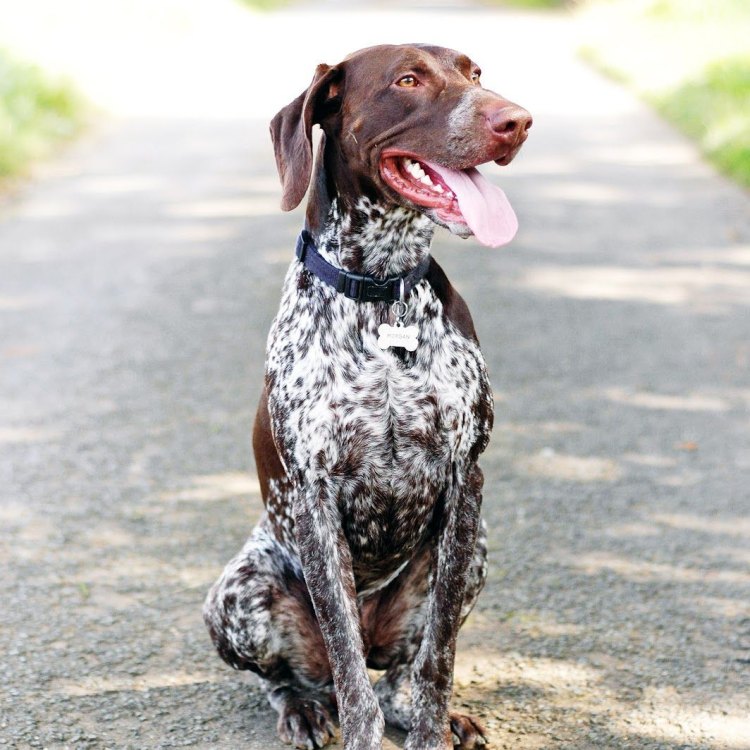
Pointer
- Adult Size: Medium
- Average Lifespan: 10-14 years
- Reproduction: Sexual
- Reproductive Behavior: Mating
- Sound or Call: Barking
- Migration Pattern: Non-migratory
- Social Groups: Pack
- Behavior: Energetic, alert, and intelligent
- Threats: None in domesticated form
- Conservation Status: Not applicable
- Impact on Ecosystem: None in domesticated form
- Human Use: Hunting, companion animal
- Distinctive Features: Pointing behavior, slender body
- Interesting Facts: Pointers were originally bred for hunting and are known for their keen sense of smell and pointing behavior.
- Predator: No major predators in domesticated form
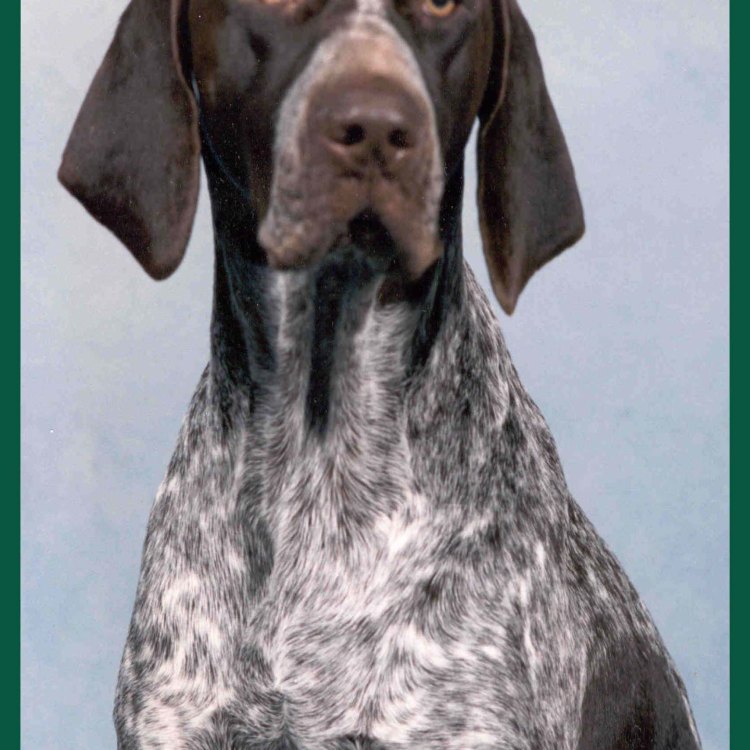
Canis lupus familiaris
The Versatile and Elegant Pointer: A Hunting Companion and Loyal Friend
The Pointer is a medium-sized dog breed that has captured the hearts of many with its elegant appearance, high energy, and impressive hunting abilities. Originally bred for hunting, this breed has evolved into a beloved companion animal with its intelligence, energetic nature, and loyal personality.Known for its distinctive pointing behavior, the Pointer is a highly skilled hunting dog that is able to track and locate game with precision. But beyond its hunting prowess, this breed has many other interesting features that make it a unique and beloved member of the canine world PeaceOfAnimals.Com.
Adult Size and Average Lifespan
The Pointer is a medium-sized dog, with males typically reaching a height of 25-28 inches and females reaching 23-26 inches. They have a slender yet muscular body that is built for endurance and agility, making them perfect for tracking and chasing game.
On average, Pointers have a lifespan of 10-14 years, with some living even longer. This makes them a long-term commitment for those who choose to bring one into their lives. But for those who are willing to put in the time and effort, the rewards of owning a Pointer are immeasurable.
Reproductive Behavior and Mating
As with most dog breeds, Reproduction in Pointers is sexual and occurs through mating. Female Pointers typically come into heat twice a year and have a gestation period of around 63 days. While Pointers have a natural instinct for mating, responsible breeders closely monitor and plan their breeding to ensure healthy and well-tempered puppies.
Sound or Call
Unlike some other hunting breeds that are known for their barking or howling, Pointers are relatively quiet dogs Peacock Bass. However, they are not completely silent. They are known for their occasional barking, especially when they are excited or want to alert their owners of something.
Migration Pattern and Social Groups
Pointers are considered non-migratory, meaning they do not have a defined migration pattern. This is because they are domesticated and do not have the need to migrate for food or shelter.
In terms of social groups, Pointers are pack animals and thrive in a social environment. This is why they make great family pets and get along well with other dogs. However, proper socialization and training are essential to ensure their friendly and sociable nature.
Behavior and Energy
One of the most striking characteristics of Pointers is their energy. These dogs are known for their high energy levels, which is no surprise given their hunting background. They are energetic, alert, and always ready for action. This makes them great companions for active individuals or families who can provide them with ample opportunities for exercise and play.
In addition to their energy, Pointers are also highly intelligent dogs. This, coupled with their strong work ethic, makes them easy to train. They excel in activities like hunting, agility, and obedience trials. Without proper training and stimulation, however, their energy can turn into destructive behaviors, making it important for owners to provide them with sufficient mental and physical exercise.
Threats and Conservation Status
In their domesticated form, Pointers face no major threats or dangers. However, it is worth noting that they are prone to some health issues such as hip dysplasia and epilepsy, which can significantly impact their quality of life. That's why it is essential to choose a reputable breeder and have regular check-ups with a veterinarian to ensure your Pointer's well-being.
Contrary to popular belief, Pointers do not have a conservation status as they are considered a domesticated breed. This means that their conservation is not a concern as they are bred and kept as companion animals and not for the purpose of preserving their species.
Impact on Ecosystem
Like their conservation status, the impact of Pointers on the ecosystem is minimal. In their domesticated form, they do not contribute to any negative effects on the environment. Additionally, the use of Pointers in hunting is closely regulated, ensuring that they do not pose a threat to any animal populations.
Human Use
Pointers have a long history of being used for hunting, and this remains true even today. However, they have also grown in popularity as companion animals due to their friendly and loyal nature. They make great family pets, and their high energy levels make them perfect for those who enjoy outdoor activities and exercise.
Distinctive Features
One of the most unique and defining features of Pointers is their pointing behavior. This is a natural instinct for them, and they are able to freeze in a pointing position when they detect game or prey. This makes them invaluable hunting companions, as it allows hunters to get into position and make a clean shot.
Their slender and athletic body is also another distinctive feature. This allows them to move with grace and speed, making them an ideal hunting dog. But it also makes them a sight to behold, with their elegance and athleticism capturing the hearts of many.
Interesting Facts
Despite their popularity, there are still many interesting facts about Pointers that many may not know. For example, did you know that the first Pointers were bred in England in the 17th century for the purpose of hunting birds and small game? They were specifically chosen for their ability to point and were crossed with other breeds to enhance this trait.
Another interesting fact is that Pointers were once referred to as the "Spanish Pointer" due to their popularity in Spain for hunting partridge. However, they eventually became known as "English Pointers" due to their development and popularity in England.
Predators
In their domesticated form, Pointers do not have any major predators. This is because they are kept as companion animals and are not exposed to the dangers of the wild. However, it is important for owners to ensure their safety and avoid leaving them unattended in unfamiliar or potentially unsafe areas.
In conclusion, Pointers are a versatile and elegant breed that has made its mark in the hunting and companion animal world. With their unique pointing behavior, high energy levels, and loyal nature, they have become beloved by many. Whether as a hunting companion or a family pet, the Pointer is sure to bring joy, love, and endless adventures to their owners' lives.
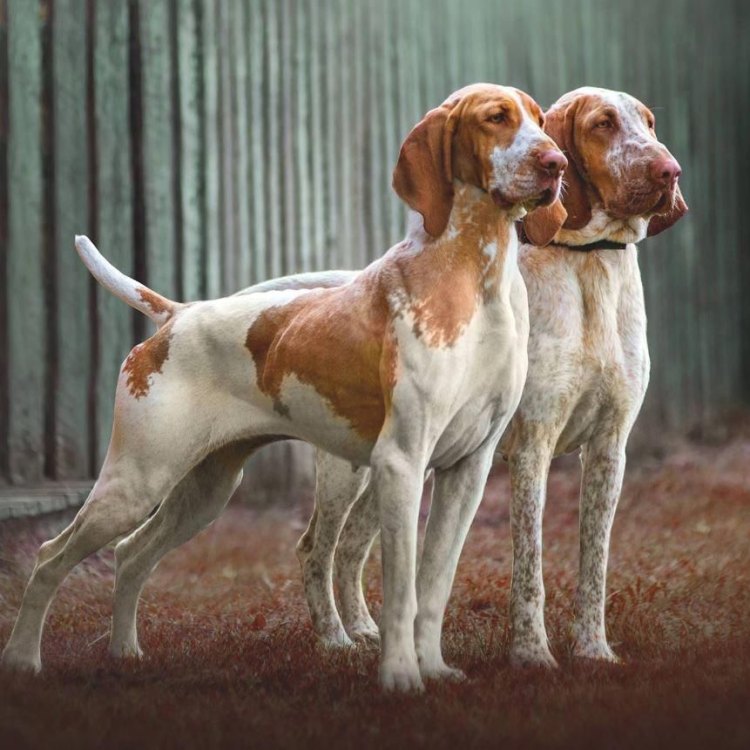
The Beautiful and Versatile Pointer: A Loyal Companion and Top-Notch Hunter
Disclaimer: The content provided is for informational purposes only. We cannot guarantee the accuracy of the information on this page 100%. All information provided here may change without prior notice.

